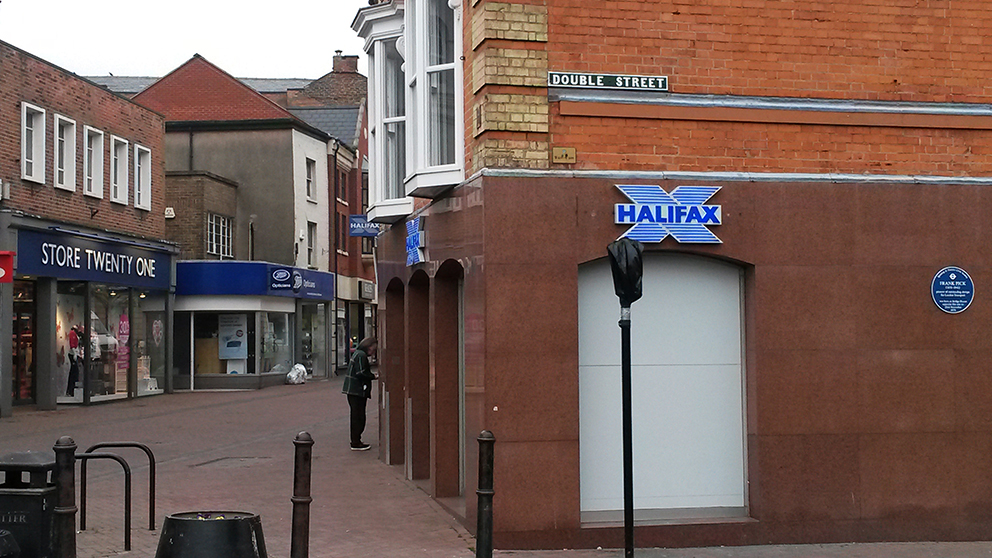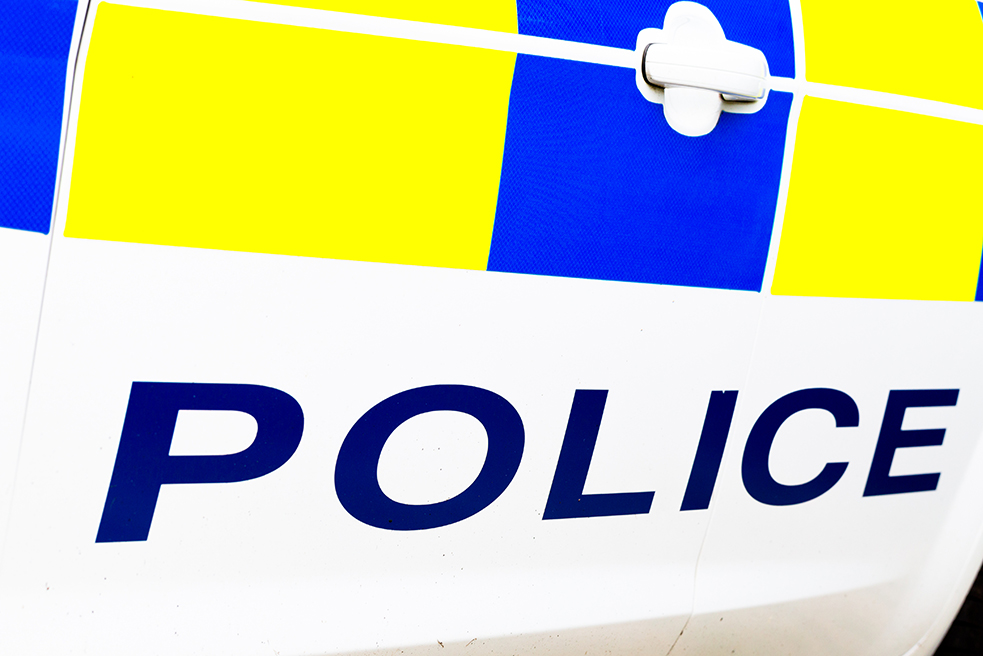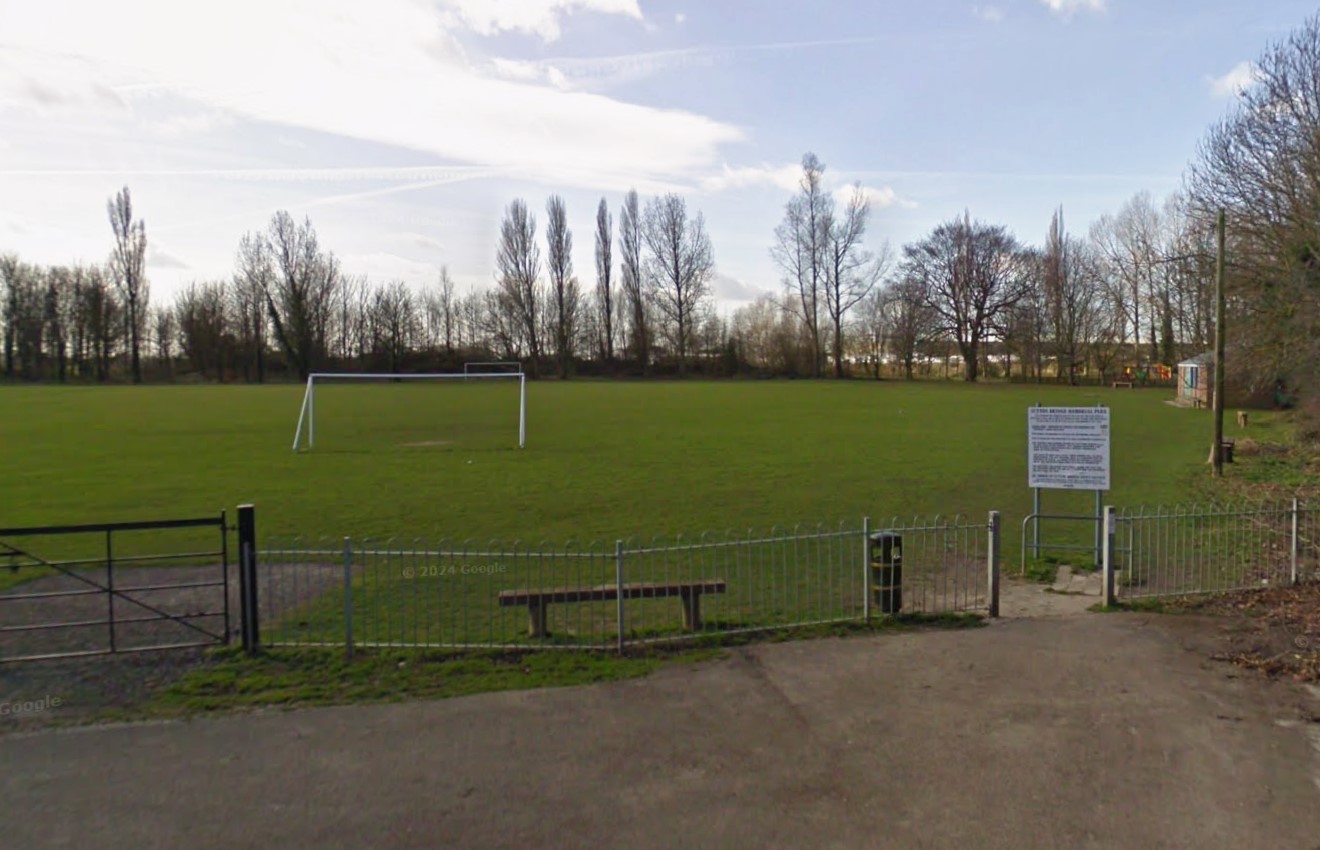Spalding and District Civic Society is having to work particularly hard to find the detail it needs to enable a fifth blue plaque marking events of note associated with the town.
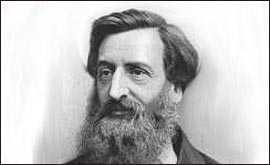
The founder of The Salvation Army – General William Booth – lived at two places in the town centre.
Investigations led by blue plaques scheme manager Judy Chapman have identified one to have been in Bridge Street, probably on the right-hand side of the building now occupied by Boots opticians.
However, establishing the whereabouts of the other is proving more problematic.
John Charlesworth, planning officer for the society, said: “We know it was in Red Lion Street, but we have no idea where.
“Whether the building was demolished or is one of the ones still there, we just don’t know.”
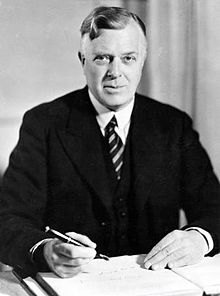
The Bridge Street site is just a few yards from one of four plaques already established on the Double Street side of the Halifax building.
Nearby on the riverbank stood Bridge House where Frank Pick was born in 1878.
He is credited with transforming the use of the London Underground, and was responsible for commissioning the now-famous Tube map, based on an electrical circuit.
A shy and sometimes difficult person (he fell out with Winston Churchill), Frank turned down offers of a knighthood and peerage, but he was honoured by Joseph Stalin for his work on the metro in Moscow.
The Spalding plaque to him was unveiled in June 2013 by Sir Peter Hendy, commissioner for Transport for London.
Nearby is The White Hart in Market Place. It was here on May 5, 1767 that a philosopher turned up in a roundabout way, having fled his native France where he had been in danger of violence and even jail for his controversial views.
Jean-Jacques Rousseau stayed for nine days. Vicar John Dinham found him to be a nice chap, but surgeon and Gentlemen’s Society member Edmund Jessop got short shrift from the Frenchman after suggesting they meet up to talk about a piece which Mr Jessop had recently published.
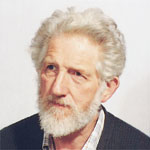
The least prominent blue plaque is situated at 22 Spring Street.
It marks where renowned historian and experimental archaeologist Peter Connolly lived for more than 20 years.
Peter was an expert on the ancient world, writing on the Greeks and Romans.
Mr Charlesworth said: “He was very, very well regarded and was often consulted for TV programmes.
“He had numerous books to his name but was a very modest man.”
Peter was well known in many local schools and libraries for his vivid demonstrations of ancient military equipment.
When the plaque was unveiled in December 2012 by Peter’s sister Trisha Duce, two ‘Roman soldiers’ from Ermine Street Guard reenactment society were in attendance to acknowledge Peter’s meticulous work on ancient history books.
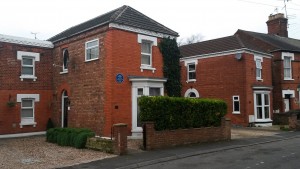
The house was crammed with pictures, scale models and reconstructed artefacts.
Former Spalding Grammar School pupil Ed Fordham led the fundraising drive for that plaque.
The latest plaque to be put up was to mark legendary guitarist Jimi Hendrix’s stay at The Red Lion Hotel in Market Place.
It was after the Barbecue 67 gig in the former bulb auction hall in May 1967.

